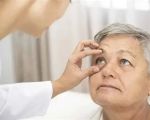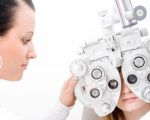- 1-Understanding-eye-strain-and-its-causes
- 2-Importance-of-proper-lighting-for-eye-health
- 3-Factors-to-consider-when-choosing-lighting-to-reduce-eye-strain
- 4-Recommended-types-of-lighting-for-eye-comfort
- 5-Practical-tips-for-creating-an-eye-friendly-lighting-environment
- 6-How-eye-docs-can-assist-you-in-choosing-the-right-lighting
Understanding Eye Strain and Its Causes
Eye strain, also known as asthenopia, occurs when your eyes become fatigued from intense use, such as prolonged screen time or poor lighting conditions. Symptoms include dryness, headaches, blurred vision, and discomfort.
Understanding the causes of eye strain is essential to addressing it effectively. Improper lighting, glare, and excessive contrast are common contributors that can make your eyes work harder than necessary.
Importance of Proper Lighting for Eye Health
Proper lighting plays a crucial role in reducing eye strain by minimizing glare and ensuring adequate illumination. Good lighting balances brightness and contrast, allowing your eyes to focus comfortably without unnecessary effort.
Whether you’re reading, working on a computer, or relaxing, the right lighting conditions help maintain eye health and improve productivity.
Factors to Consider When Choosing Lighting to Reduce Eye Strain
When selecting lighting, consider factors such as brightness level, color temperature, and the direction of light. Lighting that is too harsh or too dim can both cause discomfort.
Warm white light (around 2700K to 3000K) is often preferred for its soothing effect, while natural daylight-balanced lighting supports alertness and clarity during tasks. Adjustable lighting options allow you to customize according to different activities and times of day.
Recommended Types of Lighting for Eye Comfort
LED lamps with adjustable brightness and color temperature are widely recommended for reducing eye strain. Task lighting, such as desk lamps with focused beams, ensures that work areas are well-lit without flooding the entire room.
Diffuse ambient lighting reduces shadows and glare, creating a comfortable environment. Avoiding flickering or fluorescent lights further protects your eyes from fatigue.
Practical Tips for Creating an Eye-Friendly Lighting Environment
Position light sources to avoid reflections on screens and surfaces. Use shades or diffusers to soften direct light and reduce glare. Regular breaks following the 20-20-20 rule—looking 20 feet away for 20 seconds every 20 minutes—help relax eye muscles.
Maintaining a clean workspace and adjusting monitor brightness to match ambient lighting also contribute significantly to eye comfort.
How Eye Docs Can Assist You in Choosing the Right Lighting
Eye Docs offers expert consultations to evaluate your environment and recommend lighting solutions tailored to your needs. With access to the latest eye-friendly lighting products and personalized advice, Eye Docs helps you create an optimal setup to reduce eye strain.
For those experiencing persistent discomfort or requiring specialized care, professional guidance ensures safe and effective improvements for your eye health.








